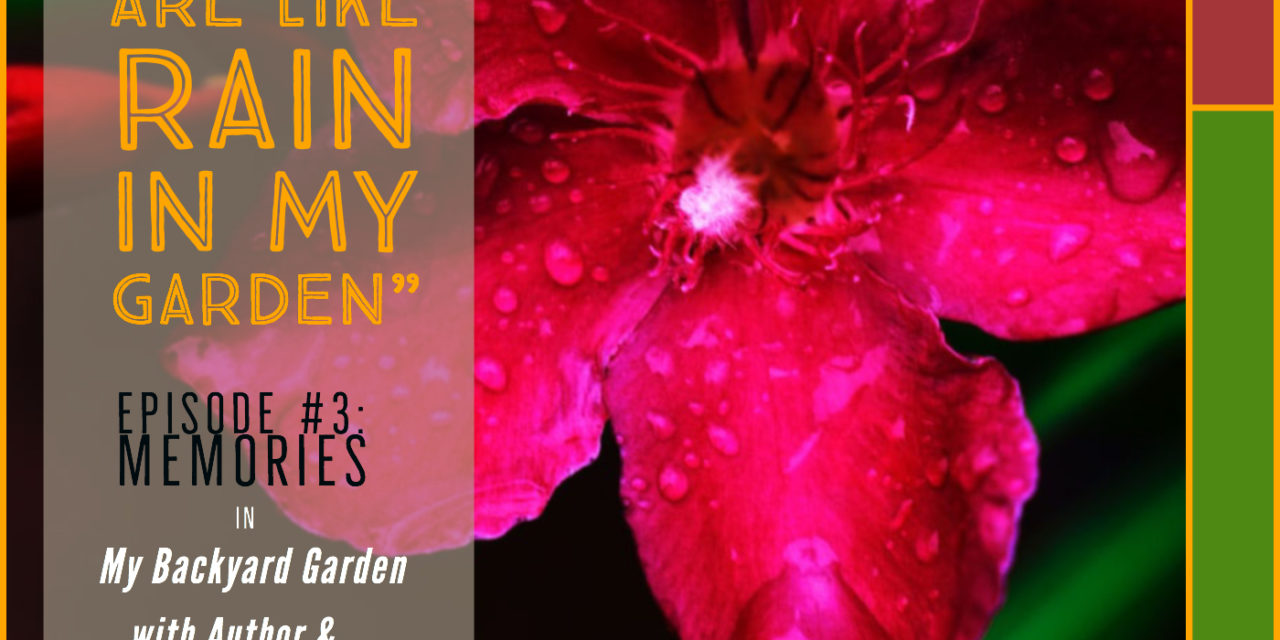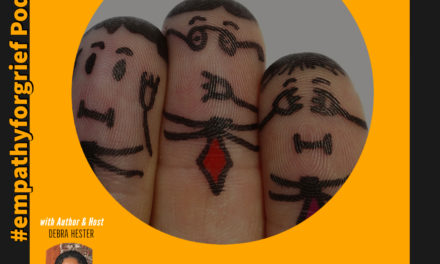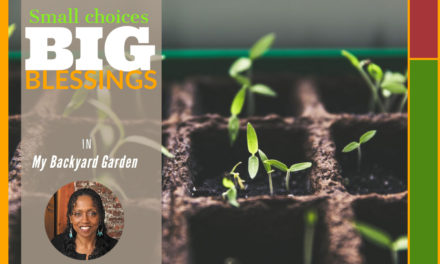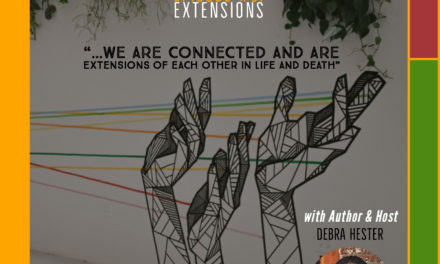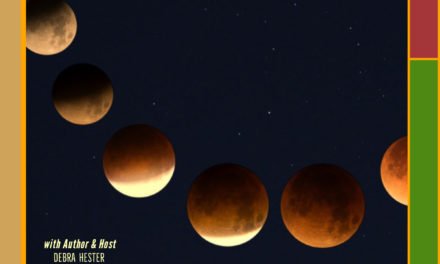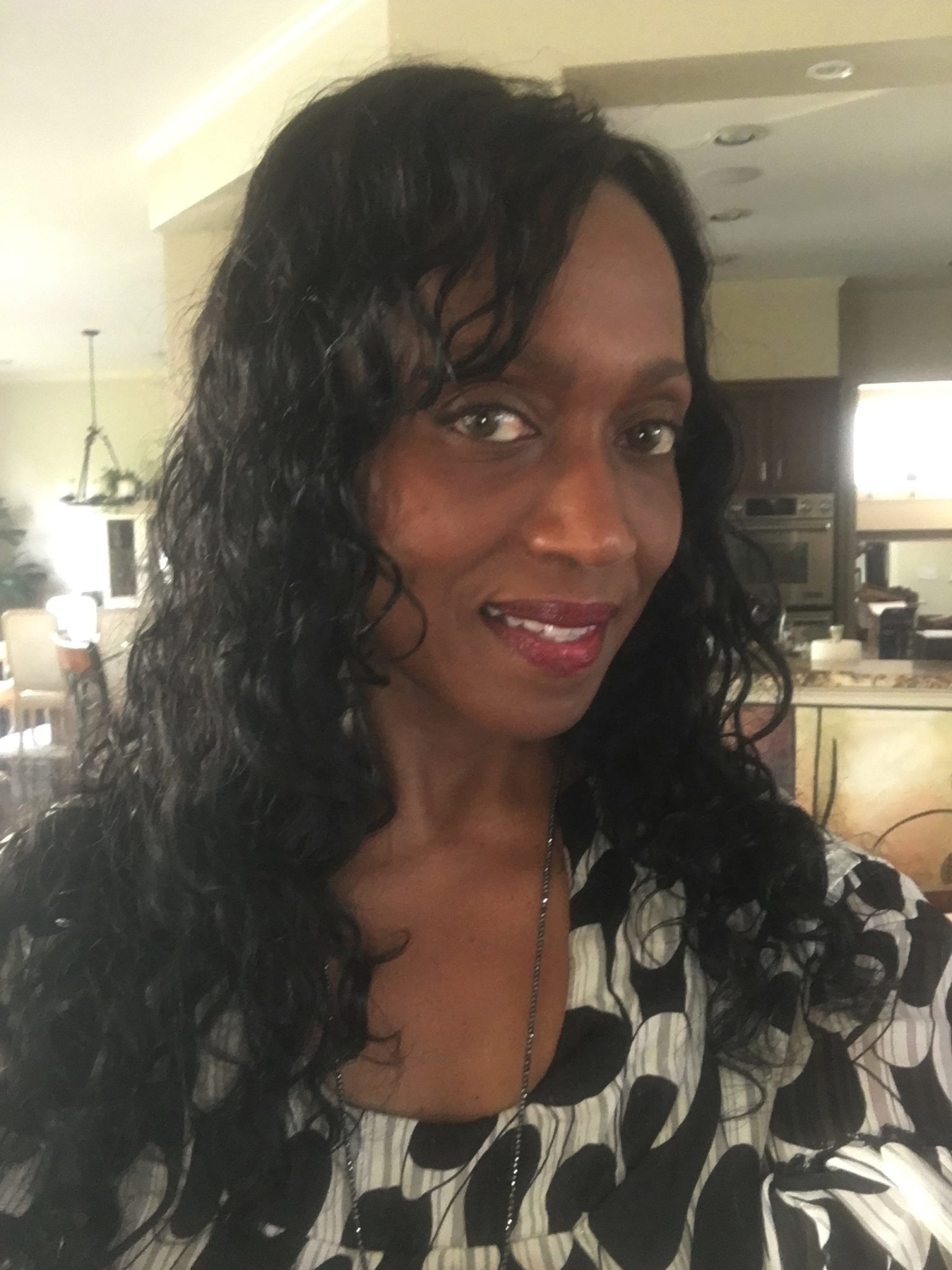Welcome to Mother’s Backyard Buzz Podcast
This #empathyforgrief podcast is about memories. Let’s “break the silent struggle” around grief by unpacking my book: “My Backyard Garden – A Memoir of How Love Conquers Grief”. I am the author and your host, Debra Hester. Chapter by chapter I’ll move us deeper into what I included and didn’t include in my book that speaks to this journey we all take called grief.
Memories Start Early In Life
One of my earliest memories as a small child was sitting in church on a church pew. I was sitting about two rows from the front row, in the center section about two seats from the far right hand side of the row. Over the years I have reflected on this scene. Each time I think of it, I think of it in a different way and over the years my understanding of the memory of me sitting in that specific spot in the church on the pew has evolved. Now that was not the only time I was in church. I spent a lot of time in church, especially through high school.
At one point, as I reflected on me in that spot, I thought of how my feet didn’t touch the floor and I enjoyed swinging my feet back and forth during church without making noise, later, I thought of how I began to want my feet to touch the floor like the big children. As I started understanding more about my faith, I began to realize that I grew up in the church from an early age, I was there when my feet couldn’t touch the floor.
Then I realized that I also was dressed really nice at an early age in church and I was more fortunate than others to have a family that was able to do that for me. As time passed, when I was in my adult years, I realized that it was there in church while I was swinging my feet back and forth that I started believing in God, a creator and was in his presence and felt his spirit. I felt the love of God before I really even knew what it was. I tell you this story to illustrate how reflecting on memories over the years brings new and continued meaning and remind you that memories will work the same during your grief journey.
This was a good and growing memory. It brought forward understanding as I matured. But there have been things that I don’t want to remember because they were bad and I felt bad at the time and I feel bad when I remember them now.
Memories Are Not Always Good
It’s not east to reflect on bad memories and when a loved one dies, we get to choose what memories we want to reflect on. Sometimes the bad ones out weigh the good ones and vice versa; but during my grief journey, I cling to good ones as they relate to my mother. Don’t get me wrong, my mother and I loved each other but from time to time, we went through it.
In time, I felt ready enough to reflect on the bad ones when they popped up in my mind or when others bring them up in conversation. I realized that so many people have had different experiences with your loved one and they may view your loved one’s life differently than you, so get ready not to react to others feelings that may seem to be in direct conflict with how you feel at the time.
Grief is a journey of patience, with yourself and others. I tried not to expend too much energy on feeling or thinking about those who couldn’t understand when I needed them to understand. In time understanding comes from within. Empathy for your self and others comes from within in time.
Sad memories felt like cold rain in my garden; but it was only a period and it didn’t kill the good ones. I might venture to say after the cold rain of bad memories, the good memories seemed more vibrant.
Where Are the Good Ones?
Where do selective good memories like the one I just shared with you come from? I know…that sounds like a question a child would ask. But I’m not sure why that memory of me in church as a small child has stayed in my mind. “Why do we need memories?” Now, that sounds more mature. Doesn’t it? Hopefully, both questions can get you wondering about memories, “your” memories and get you primed to explore your own personal memory banks about you and your loved one. I believe reflecting on memories eventually brings about understanding.
What else do we have when our loved one dies? They are not here with us anymore in the physical world. We can’t see or touch them or talk with them now, only maybe to them. I do talk to my mother. I remember a co-worker encouraged me to talk to her still and I do sometimes. For me it was not talking our loud; but it is more of thoughts in my mind to her. Talking out loud to your deceased loved one works for some people and not for others.
It’s strange because sometimes talking to my mother out loud, especially about problems that I’m facing makes me feel as if I’m bothering her with the troubles of this world after she has passed on to a better world. It’s as if I hear Mahalia Jackson singing the lyrics to the spiritual, soon I will be done with the troubles of this world, troubles of this world, troubles of this world. Then I feel a little selfish because my mother is done with the troubles of this world so why am I trying to pull her back into them.
What Do We Have Besides Memories When Our Loved One Dies?
Do you collect your memories? Tell stories about them? Now that I’m woke and realize I’m on my journey, I also realized that I can now decide what memories I want to preserve in my heart and mind. Sometimes people complain that when a person dies, we only mention the good things about them. In most cases, I agree. I don’t see what value it is to the loved one left behind to remember the bad. The deceased is not affected, only the living.
I’m not saying my mother left me with these dark, bad memories but for some who grieve it may be different. So I encourage you to pick good memories to carry with you along the way. No one is perfect. We can’t change the past even if we go there in our memories.
Your Memories Are Yours
This is your journey with your loved one from this point forward. Carry good past memories and create new good ones. Yes, you’ll create new memories. I realized that when I finally had a dream about my mother; I had created a new memory. When I travel to Baltimore and I thought of her and a new memory was created. This Break the Silence podcast is a new memory. My backyard garden continues to grow as long as I breathe life into it with memories. I encourage you, loved ones to find a way to take “the greatest” with you and gain understanding from the memories. Show yourself some empathy during this time or your loved one who is grieving. #empathyforgrief…so break the silent struggle with grief.

Thanks for Listening & Let’s Continue
I want to thank you loved ones for listening to Mother’s Backyard Buzz. This is Debra Hester, you host, where I pledge to continue to break the silent struggle with grief. Remember: move forward from grief with love and more empathy, less sympathy. If you found the podcast helpful, please subscribe to me on iTunes or wherever you get your podcasts. Please leave me a podcast review on what you’d like me to address from my book or personal experience. My book is available on Amazon online and Barnes & Nobles, if you’d like to follow along with the podcast. To learn more about my mission, check out my website and reach out to me on my blog at: www.mothersbackyard.com. Join me next week when the buzz will be about “mementoes”. Peace & Blessings

